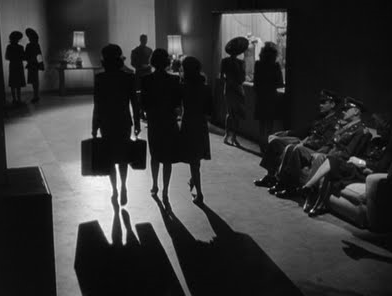 Another survey, courtesy of a user over at imdb. I thought I'd post my response here instead of there because most of those threads have relatively short shelf lives...over to the survey.
Another survey, courtesy of a user over at imdb. I thought I'd post my response here instead of there because most of those threads have relatively short shelf lives...over to the survey.1. What's bigger, movies or life? Movies-they're my life support system, along with family and friendship of course.
2. Paste one movie quote that you find profound: One that I can't get enough of ever since hearing it: "The heart is a resilient little muscle." -- Woody Allen in Hannah and Her Sisters. You can't hear it on paper, but in the film it somehow comes across as the sweetest, cutest and moving thing. I don't know what breaking up is like, but the remedy is this quote I am sure.
3. What's the one thing (tangible or non-tangible) you most regret losing? I have no idea.
4. Are you a romantic? If so, have you ever been in love? I used to be a romantic, but now I'm more cynical for no reason (I've been watching too many movies about adultery and fizzled out romances courtesy of Woody Allen). I'm also probably not a romantic because I've never been in love...except unrequitedly for a movie or book character....hmm...
5. What's one song you can't get enough of right now? I love Bobby Caldwell's Beyond the Sea. It's nice and jazzy and breezy.
6. What's your favorite fashion accessory (other than clothes of course)? I love the hats of the 20s and 30s.
7. Tell us something about the last film you watched: Zelig. A mockumentary about a man from the late 20s who has a psychological disorder where he assumes the identity of those around him. Among other things, he achieves wide fame and ends up falling for his psychoanalyst and finally his condition becomes less of a nuisance. It's a Woody Allen treasure. <3>
Favorite movie from The Archers (alias Michael Powell and Emeric Pressburger)? The Life and Death of Colonel Blimp. From the moment I heard of it I was sceptical about its appeal. Anything with the word 'colonel' sounds too military like and bland. Somehow this movie, in its glorious technicolour and great storyline, was anything but bland.
9. About how often to you post here on IMDb? Very rarely. I read other people's comments more. What can I say, I'm an observer first and participator second.
10. Coffee or Tea? Bleh, I dislike coffee (and yet I was addicted to it when I was 12, go figure), but tea is practically a staple. I drink it every morning with milk.
11. Favorite subjects? Cinema studies, Literature, Sociology-related subjects, Philosophy (which I've been really taking indirectly through Self & Other).
12. If you could be one film character for one day, who would you be? The ultimate question and yet I'm stuck. I have no definitive answer for this, so I'll have to answer with one out of a million choices. Any of Jean Arthur's characters would be great, but I'd especially like to be her Connie Milligan, no-nonsense working girl with sharp wit who's secretly yearning for romance. Why definitely.
13. What is your best and worst quality? I can't be objective about this, but at my best I'm an honest, kind, perceptive and humble person. At my worst, I'm narcisstic, insecure, unsociable and irritating/irritable. Woops, that was four qualities each, narcissicm (sp?) creeping in again.
14. What is your motto? It's simply, be happy.
15. If you could listen to one voice for the rest of your life, whose voice would it be? Charles Boyer. Sexy French accent yes.
16. If you had one superpower, what would it be? The power to be incredibly witty, now that is talent if you ask me.
17. What came first, the chicken or the egg? This question just puts me round in circles. Unanswerable.
18. Name one historical figure you find absolutely fascinating: Anne Frank. Remarkable writer, utterly complex, firm believer in good at such a time of atrocity. Her life and her diary haunt and inspire me whenever I return to them.
19. If you could live during one time or place, where would it be? Hollywood in the 30s and 40s.
20. If you could change one thing about you, what would it be? To be more productive and put some more effort into things rather than run away when the going gets tough.







